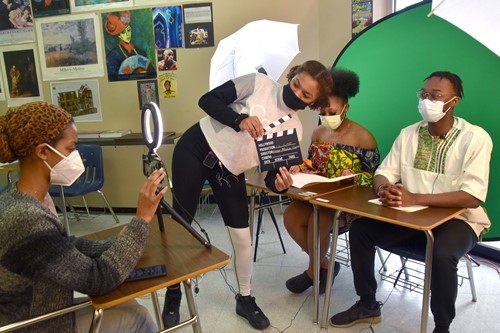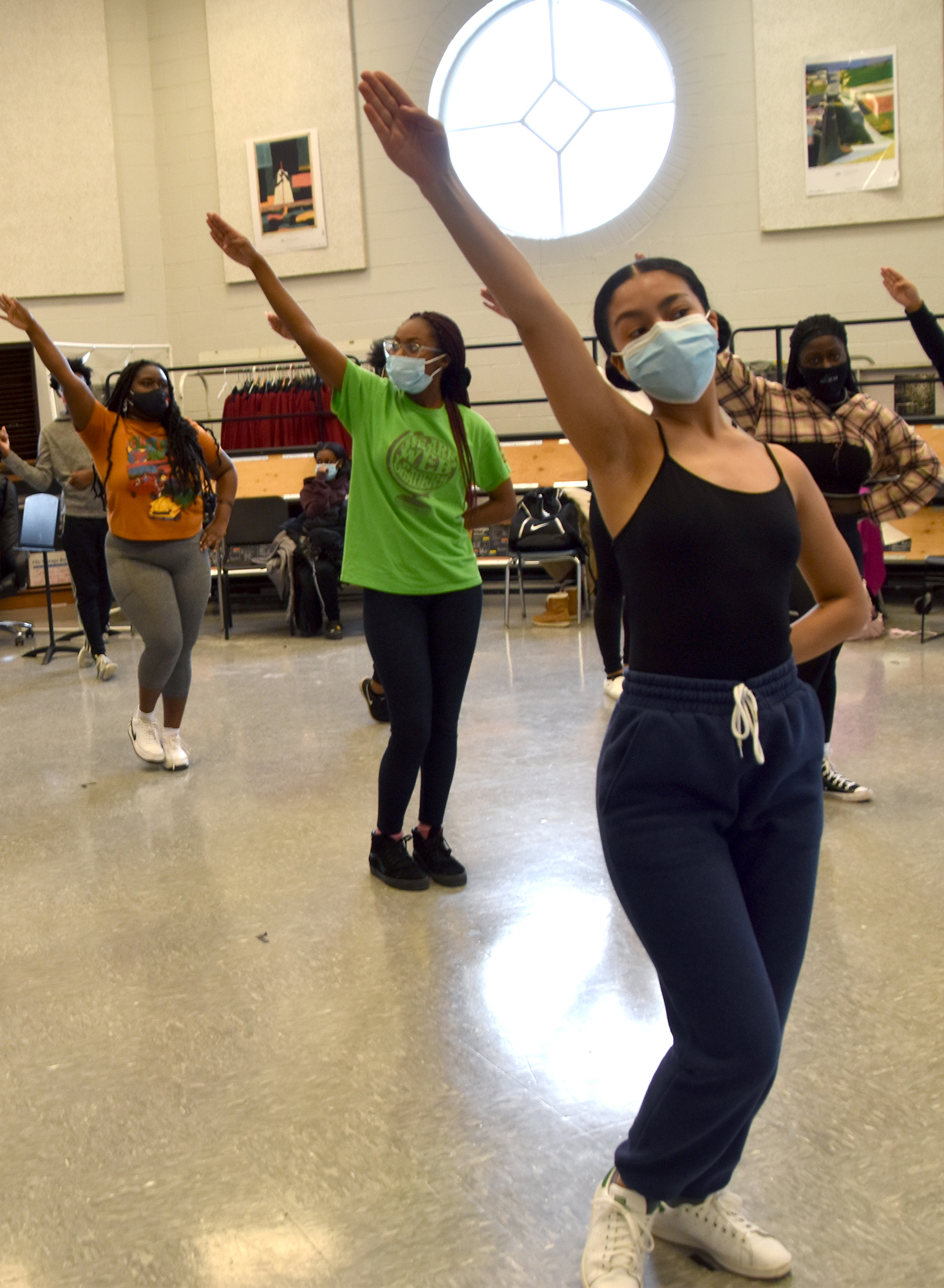The Black History Month programs at all three Westerville high schools this year share a common inspiration: the widespread protests over the death of George Floyd and the racial unrest that followed.
The students behind the programs at Westerville Central, Westerville North and Westerville South high schools have taken different approaches to respond to the conversations from the summer.
Westerville Central’s “Commotion” program focuses on the Black high school experience and culture, offering commentary on the events of the past year and what students realized about themselves through spoken word, dance and vocal performances.
Westerville North’s program, “re:Cap,” is set to a news segment that revisits the events of 2020, exploring the uncomfortable conversations that followed. The production culminates with a call to action: What can you do to stand up for things that aren’t right?
After processing the aftermath of the protests and civil unrest, students behind Westerville South’s Black Voices Celebration wanted to dedicate their program to lifting up Black voices and Black excellence.
“Students understand the importance of sharing a historical perspective of Black History, yet they see value in sharing their perspective on issues impacting them today that will soon be a part of history,” said Cynthia DeVese, coordinator of the district’s Educational Equity office.
This year also marks the first Black History Month program during the pandemic, where students had to create programs that take into account safety guidelines because of the pandemic. Programs at WCHS and WNHS are recorded for virtual viewing while WSHS’s program will open to a limited audience on Friday, Feb. 26 and Saturday, Feb. 27.
WESTERVILLE CENTRAL HIGH SCHOOL
The organizers behind “Commotion” wanted to highlight the Black high school experience, giving a voice to the stories and realities Black students face beyond the classroom.
“We all go to school together and someone will say, ‘That’s my friend,’” said senior Chi Chi Guyo, who directs the program. “A lot of times you don’t realize that a lot of people are going through things, experiencing different things. We need to talk about this because my friend who doesn’t look like me, when we graduate we’re not living the same life. We’re not going to have the same job opportunities, the same love interests.”
The program will explore the racial unrest sparked by the death of George Floyd over the past year, their experiences and what they’ve discovered about themselves through spoken word, dance and vocal performances.
“I hope that people take away a new understanding of the Black community and what we’re fighting for when it comes to Black Lives Matter and police brutality because I feel like a lot of people are ignorant to that,” said senior Levi Burks, who manages the program’s vocal performances.
While Commotion touches on serious topics, Guyo said she didn’t want the program to weigh heavily on the cast and those watching it.
“We need something we can enjoy,” she said. “You can learn some of the same things, understand the same things and the same nuances but without all the heaviness.”
WESTERVILLE NORTH HIGH SCHOOL

The title of Westerville North’s Black History Month program, “re:Cap,” captures how students wanted to approach this year’s production.
The “re:” refers to reply as one would with an email while “Cap” is a slang term students say when they hear a lie, said the program’s advisor Lily Tesfai.
“This show addresses some of the injustices they’ve seen,” she said. “These students are not more than 18 years old and they are calling out what they see.”
Performances are woven throughout the news segments presented in the production.
“What we’re trying to do with the show is start and continue the conversations that started over the past year,” junior Damou Sakho, who plays one of the show’s new anchors. “All the questions that have been asked: What is right? What isn’t right? What can you say? What can’t you say? Things that haven’t been addressed directly before. What we’re trying to do with the show is call out certain microaggressions and habits that we have as a community.”
Student organizers said the program serves as a platform to discuss topics around race that are rarely discussed in school. They wanted to give those watching the show an opportunity to interact with the topics in their own way and invite conversations.
“It’s a comfortable way to have uncomfortable conversations,” Sakho said.
The students ended the show with a call to action for their peers: What can you do to help? What can you do to stand up for things that aren’t right?
“We want them to realize that these conversations need to be heard,” said senior Kofi Ayesu. “We want them to be comfortable talking about the uncomfortable. If we get a chance to talk about it, then we can come to a realization and come to fix our community.”
WESTERVILLE SOUTH HIGH SCHOOL

The George Floyd protests weighed heavily on the student organizers behind Westerville South’s Black History Month program. After processing the aftermath of the protests and civil unrest, the South students decided to dedicate their program to lifting up Black voices and Black excellence.
“My students wanted to show positive Black experiences,” advisor Matt Wolfe said. “Through tragedy, there is hope and love. Students needed to talk and lift one another up.”
The school’s Black Voices Celebration includes skits, spoken word and choral performances as well as majorette dances, African dances and American contemporary dance.
“Most important is the students' want to show that people are thriving, that existing is part of their Black excellence and a way to pave the path forward,” he said.